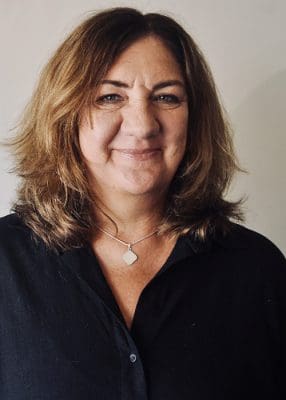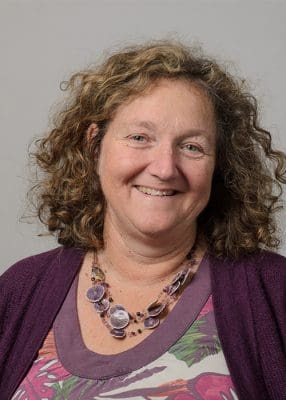
Carol Atkinson-Palombo
Department of Geography, Sustainability, Community, and Urban Studies
I am a Professor in the Department of Geography, Sustainability, Community and Urban Studies at the University of Connecticut. I specialize in collaborating across academic disciplines on interdisciplinary scholarship on policies to create sustainable cities. I use a variety of geographical techniques that include GIS-based spatial analysis, statistical modeling, and qualitative methods. Much of my research has been on transportation sustainability, which has far-reaching implications for various societal concerns such as air pollution, land use, global climate change, and social and environmental equity. Several more recent projects focus on various aspects of the transition to a low carbon economy. As a proud first-generation college graduate interested in equity and diversity, I am deeply committed to working with underrepresented students and marginalized communities.

Oksan Bayulgen
Department of Political Science
I am a political scientist with specialization on energy transitions, environmental politics, democratization and development. Over the years, I have conducted extensive field work in Russia, Azerbaijan, Kazakhstan, Norway, and Turkey with the help of numerous external and university grants. My first book (Cambridge University Press 2010) was on the relationship between regime types and foreign investments in the oil industry and my most recent book (Michigan University Press, 2022) was on the politics of clean energy development in developing countries. I am the co-founder of Energy and Elections Research Lab and Levant Energy and Security Initiative at UConn and am involved in multiple interdisciplinary research groups on renewable energy technologies and energy justice. I am especially proud to be a member of the Collaboratory, which brings together diverse scholarly approaches to find equitable and fair solutions to the problems of climate change and imagine a more sustainable future.

Syma A. Ebbin
Department of Agricultural and Resource Economics
I am a Professor in-Residence at the University of Connecticut and the Research Coordinator for Connecticut Sea Grant. Affiliated with the Department of Agricultural and Resource Economics and Maritime Studies Program, I teach courses in environmental and marine science and policy at the UConn Avery Point campus.
I am an interdisciplinary scientist with a background in natural and social sciences. Much of my work has examined participatory management approaches and the role of institutional structure on social and ecological outcomes. As an interdisciplinary researcher, I value collaborative relationships and the Justice Collaboratory has provided an ideal nexus to connect me with colleagues interested in generating transdisciplinary knowledge aimed at generating solutions for people and communities, especially those often overlooked and marginalized, that are impacted by climate change.
My research is focused on the institutional and human dimensions of resource management and policy, particularly within marine and coastal systems. Much of my work has examined participatory management approaches and including Tribal co-management efforts in Alaska and the Pacific Northwest.

Phoebe Godfrey
I am a public sociologist whose work engages with the theory of intersectionality and just sustainabilities in relation to the social causes of climate change and other environmental crises. My research mainly focuses on how best to teach these issues to enhance individual and social transformation. The JUSTICE Collaboratory offers me a chance to share these passions with others in an interdisciplinary way, as no social, or corresponding environmental issue can be solved separately. These are overlapping crises rooted in our culture's particular set of social constructions, including our social values and subsequent behaviors.
Elaina Hancock
Department of Geography, Sustainability, Community, and Urban Studies
I research climate change communication and climate obstruction tactics. My project focuses on how the K-12 educational space in the United States is influenced by pro-industry propaganda called ‘petro-pedagogy’. A just and democratic society relies on the free flow of information, and these pro-industry influences in education prevent pupils from fully understanding the climate crisis and its causes. By developing a deeper understanding of this form of climate obstruction, I hope this research can help inform policy and counter-propaganda measures to help build a just and sustainable future.

Kathleen Segerson
I am a Board of Trustees Distinguished Professor of Economics and former Associate Dean of the Graduate School at the University of Connecticut. I am an environmental economist, with a strong interest in collaborative interdisciplinary work. My research within economics is primarily focused on the incentive effects of alternative environmental and conservation policy instruments, with applications to groundwater contamination, hazardous waste management, land use regulation, climate change, nonpoint pollution from agriculture, and protection of marine species. I have worked with numerous interdisciplinary advisory groups, including the National Academy of Science (NAS) committee on geospatial tools to improve implementation of the Biden Administration’s Justice40 initiative, the advisory committee for the U.S. Global Change Research Program, and the review panel for the National Climate Assessment. I am currently serving on the NAS Ocean Studies Board, and previously served on the Board on Agriculture and Natural Resources, as well as on the U.S. Environmental Protection Agency’s Science Advisory Board. The Collaboratory provides a vehicle to foster holistic evaluation of the impacts of federal, state, and local policy decisions on individuals and communities to ensure that environmental and natural resource management is not only efficient but also just and equitable.

Anji Seth
Department of Geography, Sustainability, Community, and Urban Studies
Anji Seth, an engineer, atmospheric scientist and climate modeler by training, has become interested in social, ecological and economic issues at the heart of the transitions underway. She is interested in what people and communities need in order to become sustainable and thrive for the long term.

Eleanor Shoreman Ouimet
I’m an environmental anthropologist and assistant professor of Environment and Human Interactions in the Department of Anthropology here at UConn.My work is largely interdisciplinary and revolves around issues of environmental justice, disaster preparedness, community response to natural hazards, green energy, and the effects of climate change.
I lead several initiatives on campus that engage with the Collaboratory’s emphasis on increasing diversity, equity, and inclusion at the university and community level, including the DISASTER (Designing Interdisciplinary Science And Strategies To Enhance Resilience) Research group, the UConn Racial Microaggression Research Team; and the Eversource Energy Research Center’s Clean Energy and Smart Grid Community Engagement Team.